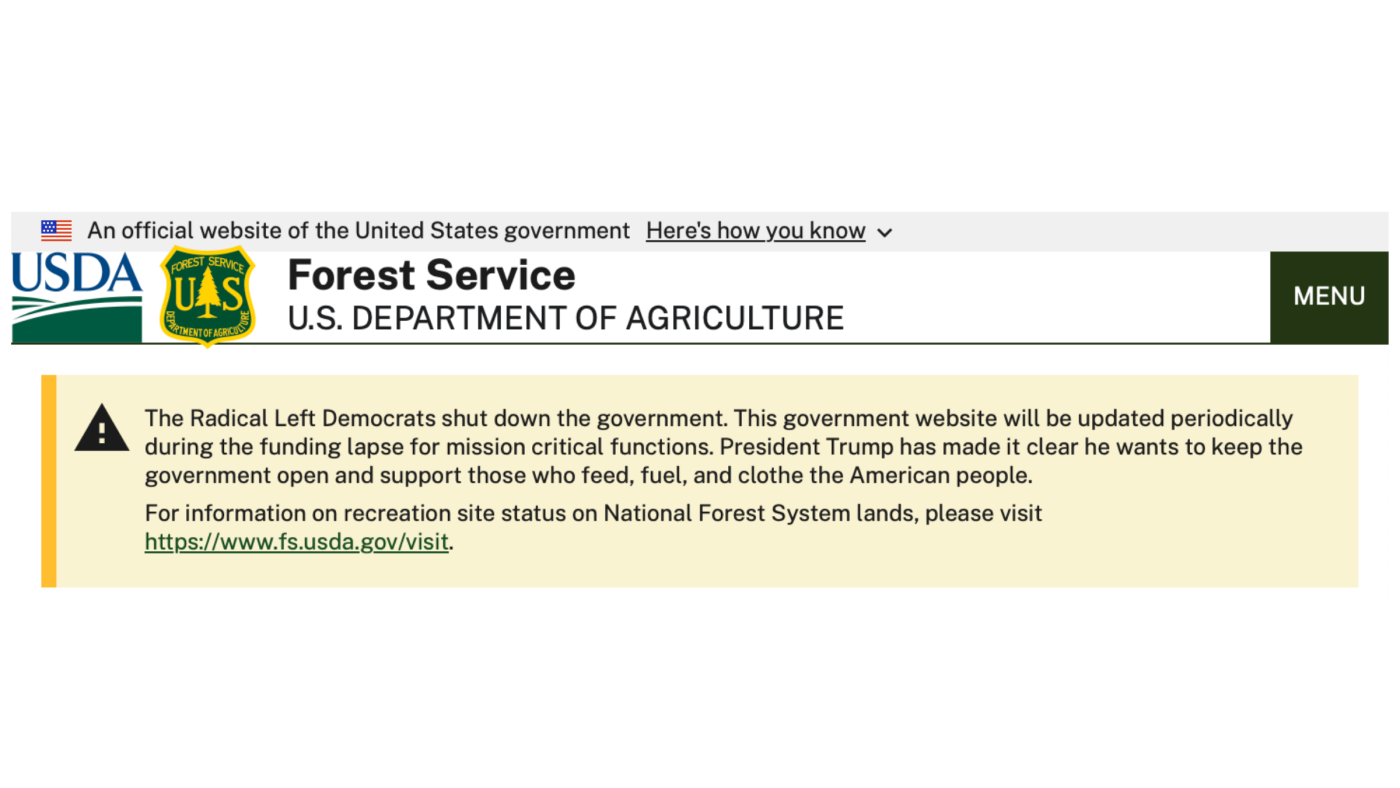Legal battles are heating up over language used by the Trump administration on federal websites. The issue revolves around statements that blame Democrats for the government shutdown. These messages, seen on federal agency sites and in automated email replies, claim that responses could be slow due to a “Radical Left Democrat Shutdown.”
Critics, including Democrats and a union representing federal workers, argue that this violates the Hatch Act. Established in 1939, the Hatch Act prohibits federal employees from engaging in partisan politics while on duty.
Todd Achilles, a former Democratic state legislator from Idaho, filed a complaint with the U.S. Office of Special Counsel. He believes the messages are inappropriate for a federal platform. “We don’t play politics with public lands,” Achilles told NPR. “The Forest Service should serve all Americans, regardless of their political views.”
However, it’s uncertain how quickly the complaint will be addressed. The Special Counsel’s office has stated they are unavailable due to funding issues.
The U.S. Department of Agriculture, which oversees the Forest Service, hasn’t commented yet. Since the shutdown, their automated emails use similar language, stating that President Trump wishes to keep the government open and support those who “feed, fuel, and clothe” Americans.
Separately, the American Federation of Government Employees has sued the U.S. Department of Education over similar automated messages and has sent a cease-and-desist letter to the agency.
Concerns among retired federal managers highlight the chilling effect of such language. Many civil servants are already facing layoffs or early retirement. Steve Ellis, a former Bureau of Land Management deputy director, expressed that partisan rhetoric has no place in federal communications. “In our careers, we have never seen anything like it,” he said.
The current climate raises questions about how government agencies interact with the public. As civil service issues grow, understanding how politics influences federal messaging becomes more crucial.
For more information about the Hatch Act, visit the U.S. Office of Special Counsel.


